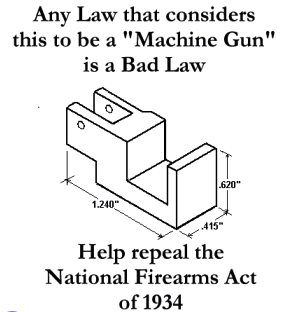A slightly smaller pistol than the compact previously shown, and with an updated C5L light/laser. This pistol is one of the most common, no-frills defensive weapons out there, a Honda Civic of pistols.
- Send email to Oleg Volk.
-
Recent Posts
Recent Comments
- Larry Arnold on A little tease.
- Yuri on A little tease.
- Larry Arnold on A little tease.
- Boris on Another quiet neighbor
- Boris on The vintage and the modern
Archives
- January 2026
- September 2025
- August 2025
- April 2025
- March 2025
- February 2025
- December 2024
- November 2024
- October 2024
- September 2024
- August 2024
- July 2024
- June 2024
- May 2024
- April 2024
- March 2024
- January 2024
- December 2023
- April 2023
- November 2022
- June 2022
- May 2022
- April 2022
- March 2022
- February 2022
- January 2022
- December 2021
- November 2021
- October 2021
- June 2021
- January 2021
- December 2020
- October 2020
- September 2020
- August 2020
- July 2020
- May 2020
- April 2020
- March 2020
- February 2020
- January 2020
- December 2019
- November 2019
- October 2019
- September 2019
- August 2019
- May 2019
- April 2019
- March 2019
- February 2019
- January 2019
- December 2018
- November 2018
- October 2018
- September 2018
- August 2018
- July 2018
- June 2018
- May 2018
- April 2018
- March 2018
- February 2018
- January 2018
- December 2017
- November 2017
- October 2017
- September 2017
- August 2017
- July 2017
- June 2017
- May 2017
- April 2017
- March 2017
- February 2017
- January 2017
- December 2016
- November 2016
- October 2016
- September 2016
- August 2016
- July 2016
- June 2016
- May 2016
- April 2016
- March 2016
- February 2016
- January 2016
- December 2015
- November 2015
- October 2015
- September 2015
- August 2015
- July 2015
- June 2015
- May 2015
- April 2015
- March 2015
- February 2015
- January 2015
- December 2014
- November 2014
- October 2014
- September 2014
- August 2014
- July 2014
- June 2014
- May 2014
- April 2014
- March 2014
- February 2014
- January 2014
- December 2013
- November 2013
- October 2013
- September 2013
- August 2013
- July 2013
- June 2013
- May 2013
- April 2013
- March 2013
- February 2013
- January 2013
- December 2012
- November 2012
- October 2012
- September 2012
- August 2012
- July 2012
- June 2012
- May 2012
- April 2012
- March 2012
- February 2012
- January 2012
- December 2011
- November 2011
- October 2011
- September 2011
- August 2011
- July 2011
- June 2011
- May 2011
- April 2011
- March 2011
- February 2011
- January 2011
- 0
Categories
- advice requested
- ammunition
- armor
- art
- author
- beast
- book
- camera and lens
- cat
- civil rights
- computing
- craft
- dangerous
- economics
- flowers
- food
- green
- holster
- hoster
- humor
- hunting
- interesting people
- knife
- light/laser
- nature
- nude
- pet
- pink
- pistol
- portrait
- prey
- red
- rifle
- rkba
- self-defense
- shotgun
- sound suppressor
- tools
- training
- travel
- Uncategorized
- video
- weapon
- wordpress
Meta



















